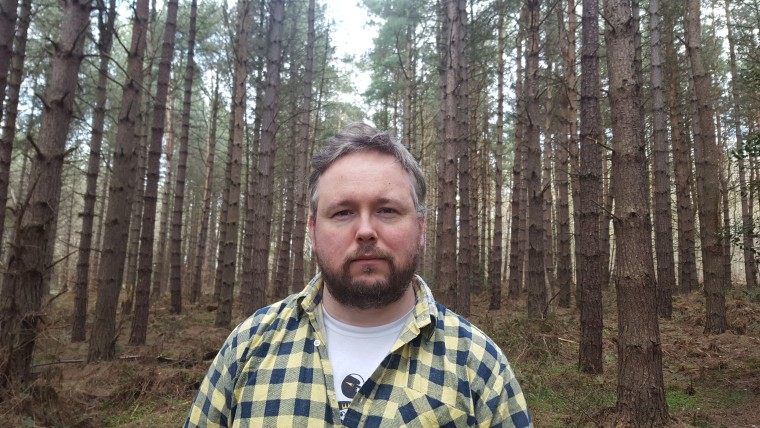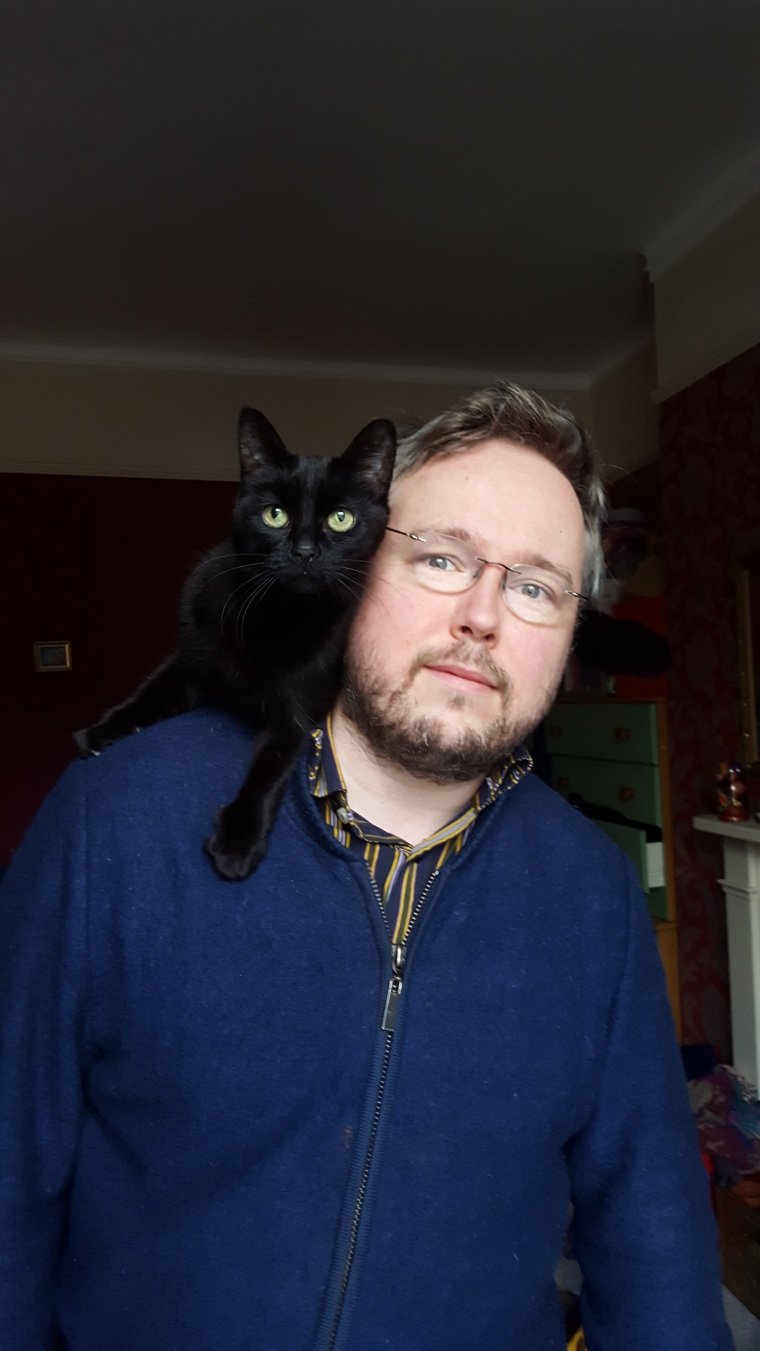 Richard Dawson
Sally Pilkington
Richard Dawson
Sally Pilkington
To describe Richard Dawson’s 2020 as the English singer/songwriter’s pop album would be both correct and severely underselling the idiosyncrasies that have made him a cult folk icon in his home country. Dawson’s sixth solo album certainly sees him embracing big hooks and earworm choruses and, crucial to so much mainstream appeal, unlike 2017’s Peasant, it is not set in the Kingdom of Bryneich between the years 400-600. Over ten tracks he casts an empathetic eye across Britain during a time of division and political upheaval. In return he offers up a collection of humane vignettes of enormous breadth and microscopic emotions, taking in everything from the gig economy and anxiety disorder to UFO spotters and angry dads shouting at their kids as they play soccer.
Speaking from his home in Newcastle, in the north east of England, Dawson is reluctant to pin his songs down to specific meanings or as having any overarching motivation though. A warm and keen conversationalist, he warns that the call could be cut off at any moment as “I’m laying down on the bed and the cat likes to walk on the phone and press the buttons.” Over the subsequent hour Dawson reveals himself as an archivist of other people’s stories, stitching them together into something that is both representative of a time and yet unique to himself and his view.
This album, with its themes and setting, feels more contemporary than your previous work. Is that why it’s called 2020?
Well I don't really want to fix it, you know. I guess there's two obvious connotations; the time but then also with the sight as well, 20/20 vision. I suppose one of the things I think about a lot is time and our perception of it. I try and think about our place and time and the certain patterns that repeat and how we can maybe break them. I’ve been thinking about how, if we could take a bit of a longer view, we might be able to discern the patterns a bit more and that might help us to make new ones instead of making the same sort of mistakes.
Does this feel like a more overtly political album to you, than in your previous work?
For me, it's personal and not political. I always felt like when people put politics first in music it tended to be not so good. Of course, every act is political, though. I want something to have the right effect or to be of use. It needs to be many, many things, before it's political. It needs to kind of work as a living thing. The whole thing about political music I've found is that, it's quite didactic. That's precisely what we're in opposition to. It can't be that.
Is “Jogging” — a song about struggling with anxiety — written from personal experience?
It's not about me, as much as any of them aren't, but of course, they all are, I suppose, to some degree. The person in the song isn't me but they're all personal, for sure. I don’t want to be obtuse but it's just that in the past I've maybe done harm to a song, by saying too much. There's a lot of specificity in the songs but there's a lot of parts where you might expect specificity, where that isn't and that's for a good reason. I don't want to fix it and things. You draw aspects from your own life or friends and family and also, just through talking to people. I chat to a lot of people at gigs and get to meet a lot of different people that way and just out in the street as well. Sometimes certain things come up again and again. Certain experiences people have been having and it seemed to repeat and repeat.
There’s a line in the song about an immigrant family facing acts of aggression. Is that rising tension something you have noticed in the north east?
I live in a really multicultural area of Newcastle. It's not a particularly multicultural city, compared to others but I'm in a really amazing area here and I would never have expected in a million years, to hear any racist abuse. However, there was an instance of really nasty stuff on the main road, just close to where I live, just the other day. I don't think that would've happened here, a few years ago. The last verse of “Jogging,” about how the atmosphere is getting nasty around here, is something that I've increasingly felt and find quite an overwhelming thing.
One of my favorite songs on the album is “Two Halves,” which is about soccer. Could you tell me about your relationship to the sport both now and as a child?
You know, like loads of families, we were sort of indoctrinated into it from birth. In Newcastle, it is such a big part of the city. We didn't go to so many games, we couldn't afford that. We'd go to the odd one, a couple of games, something like that. Growing up, it was like wall to wall football and we all wanted to be footballers and I sort of fell away from that, when I got into music and drinking. I was a pretty good as it goes... quite a handy little midfielder, a real chiseling little bastard.
Nowadays, I'm a big Newcastle fan, and I love it but it's also so horrendous. To me, football is society in miniature. All of the very worst things about society are kind of played out, in terms of winning at all costs. There's so much diving and unsportsmanship and all this stuff. There's that side and then you have these honorable characters, who play the game in the right way and they bring the meaning to the whole thing. It's just so sewn into the fabric and so many people love it or engage with it, in some way. It matters in a very sort of practical way, to how society runs and the economics.
You must feel that quite keenly in Newcastle as well, which is by no means a rare case but a very high profile example of a club, run by somebody whose intentions seem less than pure…
Exactly. Yeah. That it could still exist, that the heart, the soul of the football club could still be an honorable thing in the face of that, is very interesting to me. That's not a given, you know, that can be eroded. It's such a huge business now and the idea that huge amounts of money are being made on the backs of the real supporters and real people. For most of the fans in the stadium, it's their last bit of spare cash that they're putting towards their tickets. That that could exist — it's both horrific and glorious as well. It's a total contradiction. Plus, all of those highfalutin things aside, the game itself, is very beautiful to watch. That's kind of the crux of it. The way the ball moves can be just so wonderful.
Do you have a favorite Newcastle player of your lifetime?
My favorite player of all time is quite a recent one and that's Jonas Gutierrez. I love that guy because he was just all heart. He totally got what it meant to be a Geordie. When he had testicular cancer he was treated so badly by the club and it was really shameful. I never lost faith in Gutierrez, though. I put £5 on him to score in the last match of that season, when we were in the relegation battle, and he came up with the goods. I was at a carvery in Bradford and I just ran around the place. I didn't know where I was, I was so excited about it. I love that guy. He's not the best player, by a long stretch, but his heart is just magnificent.
 Sally Pilkington
Sally Pilkington
This album features some big hooks and choruses. Were there any influences, in terms of songwriters you admire, that inspired that move?
I always think about Nev Clay, who's an amazing Newcastle singer/songwriter, very amazing sense of melody and incredibly direct lyrics. He writes, and writes about what he sees, so he's unafraid to sing about a carrier bag, or an off license. I was also thinking about maybe a little bit of Neil Young here and there. And then I've been listening to really amazing pop, stuff like Hannah Diamond, and I love the SOPHIE album. I mean, I don't think that 2020 necessarily reflects those things, but it's all in the mix.
The writing on the album is so precise in places and the songs have such a strong sense of narrative. Have you ever explored mediums beside music with your writing?
Yeah, but I didn't have a lot of luck, because I find it very hard to just write ahead when I'm writing lyrics. I'll spend so much time on a line. So it's really a totally different process to write a long piece of prose, or a book or something like that. I haven't really had a lot of success there. I think maybe my time might be better spent pushing on with songs, rather than trying to do anything like that. But we'll see, never rule it out.
Do you see your albums working in dialogue with one another, or are they more individual kind of statements?
I see them linked, for sure. And I've had an idea of the last couple for a long time. And I have some thoughts for the next few things as well, and maybe some things further down the line too. So yeah, I see all as one piece of work really, in the same way ... Are you familiar with Circle? The Finnish band?
I'm not, no.
They're like my favorite band, but all their catalog, it has this kind of cumulative effect. It's very interesting to me, they're all so different, these albums, but they all compliment each other. So that got me thinking: I guess the culture these days is quite song based, singles and Spotify and all that stuff. I guess people get this with box sets and TV, Sopranos and Breaking Bad and all that stuff, that you could achieve such great things with a more longform approach. And I think the album is a beautiful medium to do that.